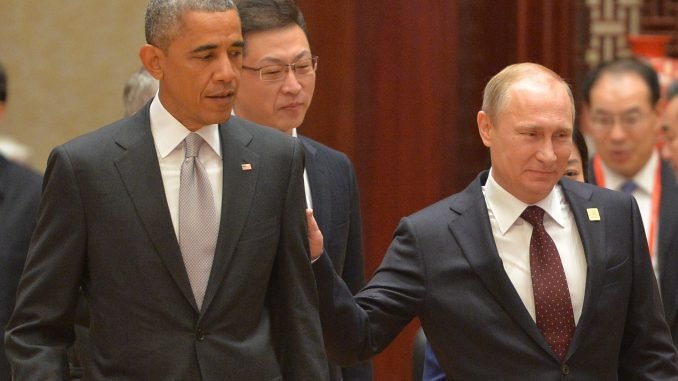
In his words, the scenario would threaten the entire Eastern Europe, including the Baltic states, as it would make NATO guarantees look less reliable.
Kęstutis Girnius, associate professor at Vilnius University’s International Relations and Political Science Institute, disagrees, saying that fears for the safety of Lithuania, Latvia and Estonia are ungrounded.
“Have you heard about the Iran-Ukraine affair?” Cohen said in the opening paragraph of his comment in the influential US daily.
“It goes like this. Vladimir Putin‘s Russia makes nice over an Iran nuclear deal. It is helpful in every way. A recent headline on a piece by my colleague David Sanger read, ‘Role for Russia Gives Iran Talks a Possible Boost.’ In return, the United States turns a blind eye to the big Russian military build-up on the Ukrainian border and in areas under the control of Moscow-backed rebel separatists,” Cohen said.
The political reviewer emphasizes there might not be a formal deal on Iran and Ukraine between US President Barack Obama and Putin. However, he suggests that the Russian leader has a keen eye for American weakness and an exquisite sense of timing.
“The abrupt flaring of new fighting in eastern Ukraine, and the abrupt Russian readiness to help on Iran ahead of the Nov. 24 deadline for nuclear talks, are not a mere coincidence. They are part of a Russian strategy and, for now, the United States is playing along,” he said.
The reviewer said that, after annexing Crimea, Putin “has designs on all Ukraine,” and “the West’s mistake has been to think that Putin is not serious in wishing to reconstitute the Soviet Union in new guise”.
In Cohen’s words, Russia may be preparing for an attack, while the Western response is not adequate.
“The current Russian buildup has all the signs of preparation for an offensive. Large, unmarked convoys of heavy weapons and tanks manned by personnel without insignia on their uniforms (like those who took over Crimea) have been seen rumbling toward the front lines in rebel-held territory. Sophisticated artillery and ground-to-air missile systems have been moved into position. Units all the way from the east and far north of Russia have been massed. You don’t move military units thousands of miles for nothing,” he warned.
“In response to Putin’s hammer, the West has expressed concern. The United States National Security Council spokeswoman has said, ‘We are very concerned.’ The European Union has called the reports of convoys of heavy weapons ‘very worrying.’ Concern and worry do not stop a hammer. [Ukrainian President Petro] Poroshenko’s requests to Obama for substantial American military assistance should not have been rejected,” reads the article.
In the words of The New York Times reviewer, if the Western world loses Ukraine, NATO’s commitments to defend the Baltic nations will no longer be considered credible.
“The reality is dangerous. A quarter-century after the fall of the Berlin Wall, as balloons go up in the German capital, a nation of 45 million people that wants to enjoy the fruits of European freedom is being abandoned to Russian dismemberment. If that happens, if Ukraine is lost, America’s promise to its NATO Allies in the Baltics and Eastern Europe is not going to be viewed as credible. A core Russian strategic objective since 1945 — the decoupling of American and European defense — will be on its way to realization. I just hope the refrain inside the White House is not: ‘We can’t annoy the Russians on Ukraine. They’re being helpful on Iran. We won’t get a deal without them.’ But I wouldn’t bet on it. An Iran-Ukraine affair is plausible,” Cohen wrote.
Meanwhile, Lithuanian political scientist Girnius disagrees that the Baltic states may have in store the same fate as Ukraine, saying that Cohen refers to the unjustified Cold War domino theory.
“Cohen’s fears that the Baltic states may face the Ukrainian fate have no stronger grounds. He in part cites the Cold War-era domino theory, which suggests that a country like Vietnam being occupied by the Communists may lead to Communism in all neighbouring countries. History has denied the theory,” Girnius told BNS on Wednesday.
In his opinion, there are no reasons to think that the US and European nations will be separate in the field of defence.
“If the EU demands stronger defence of Ukraine by the US and Washington refuses, the EU may feel it will be left alone and may attempt to find a new modus vivendi with Russia. However, it is the US that holds a stronger stance on Russia,” said Girnius.
The US, Russia, Germany, China, France and Great Britain expect to reach agreement with Iran at the end of November on its nuclear program. The West wants Tehran to guarantee that the nuclear program will not be used for development of nuclear weapon. Iran, in its turn, wants all sanctions lifted.
Russian Foreign Vice-Minister Sergey Riabkov expressed hope on Wednesday that the agreement would be reached on 24 November. Moscow traditionally has closer relations with Tehran than the Western world.

Be the first to comment